Three Mothers at the Migration Museum
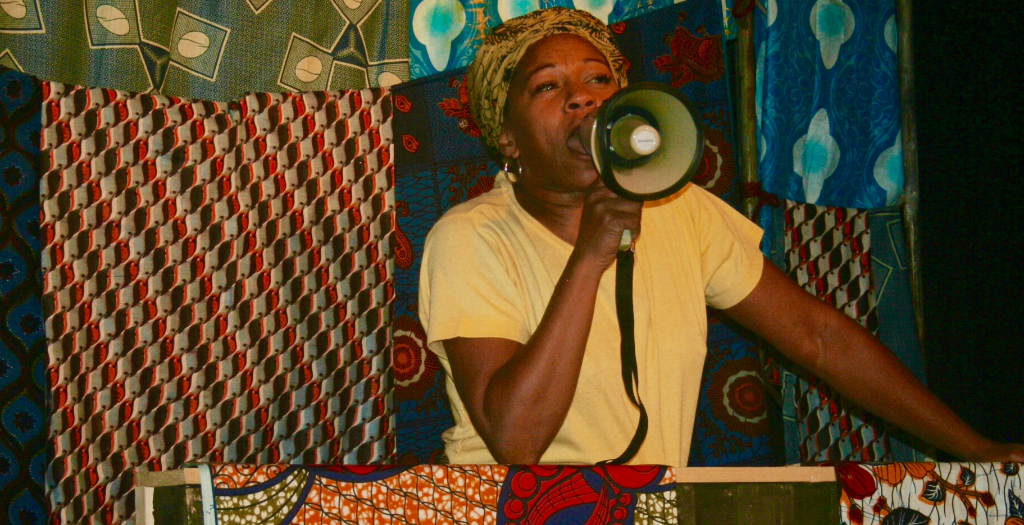
Three Mothers seeks to define the concept of migration through the gaze of three women connected across time and space through one story. Each woman recounts her tale of motherhood, all of which are tied up with issues of forced migration. Khady (Agi Nanjosi) is left with only goats, three children and no prospects when her husband dies. She sells the livestock and uses some of the profits to buy herself a shop and a large sum of it to send her son to Europe where he can work and send money back. Gisela (Roberta Kerr) speaks of her own move from Germany to England and her return to the small Bavarian village where she grew up, while also recalling her mother’s journey on foot as ethnic Germans were forced out of their homes by Czech and Russian soldiers. Gisela’s mother Erika (Victoria Brazier) relives the treacherous journey taken in 1945. In this manner, the tales of the myriad nameless people flooding into Europe across the vicious sea are made human and relatable through context and factual storytelling that connects the past to the present.
Matilda Velevitch weaves the narratives in an effortless amalgam across many layers, which allows Three Mothers to speak on behalf of all refugees and their shared struggle for a better existence. Through the warmth, devotion and insecurities of Gisela, the recent issues of migration that have possessed news mediums across Europe are made relatable and understandable to a European audience. However, that Gisela, as a white woman, should be the saviour of a young African man is highly problematic, especially considering that the play focuses entirely on the support, generosity and “Wilkommenskultur” of the Germans in the small town towards the countless young migrants.
Three Mothers is a series of monologues that requires the imagination of the audience. With its limited use of space and sound design, it runs the risk of becoming quite tedious. Though it’s interesting to see the ways in which white Europeans relate to the plight of the new wave of refugees, the focus on similarities can also risk overlooking differences – crucially that it is the continued exploitation of resources, land and people of the colonies which benefit colonial Europe that form the underlying causes of the flood of migration into Europe.
Marissa Khaos
Three Mothers is at the Migration Museum from 4th until 6th June 2019. For further information or to book visit the theatre’s website here.
For further information about Refugee Week visit the festival’s website here.
Watch the trailer for Three Mothers here:

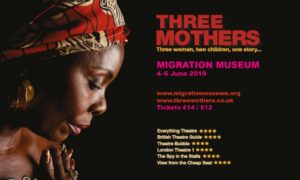
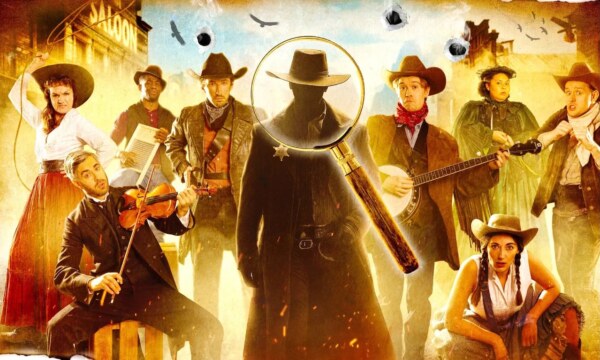
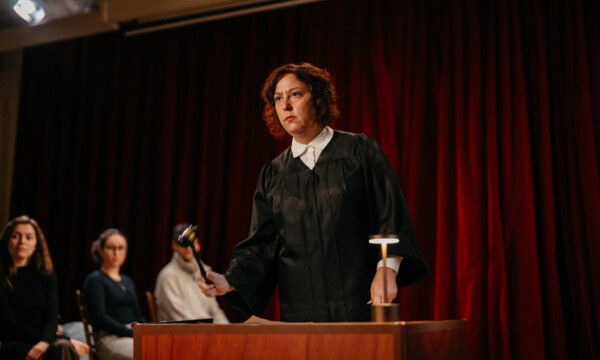
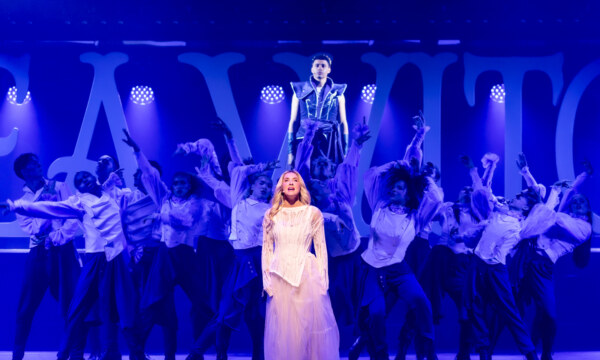
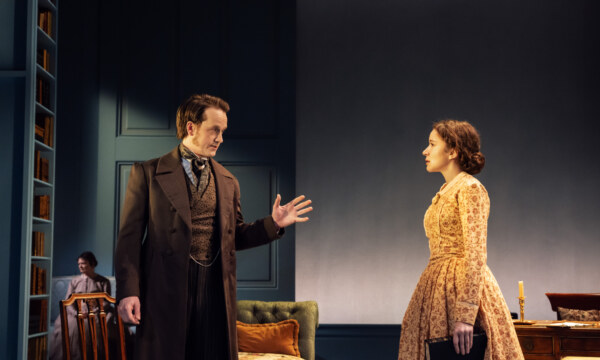

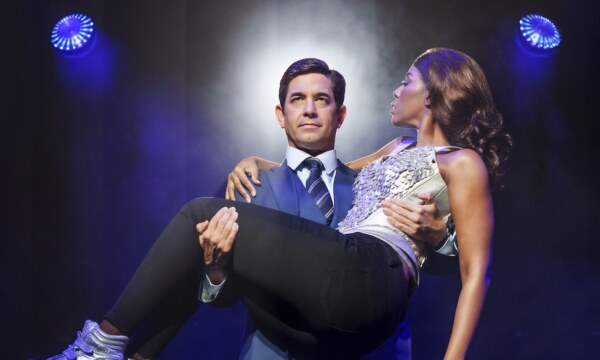
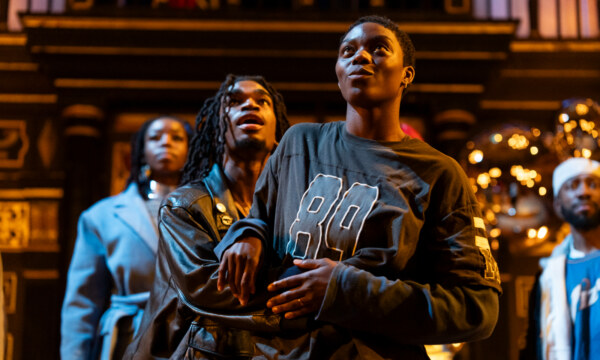
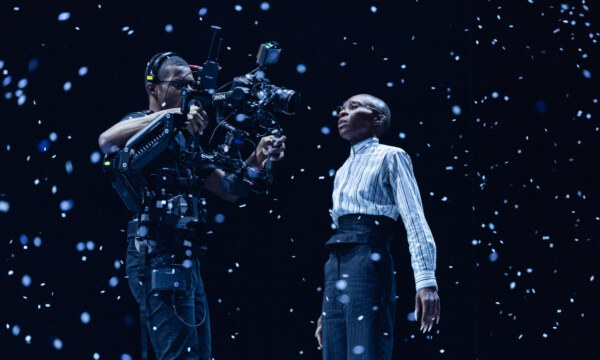
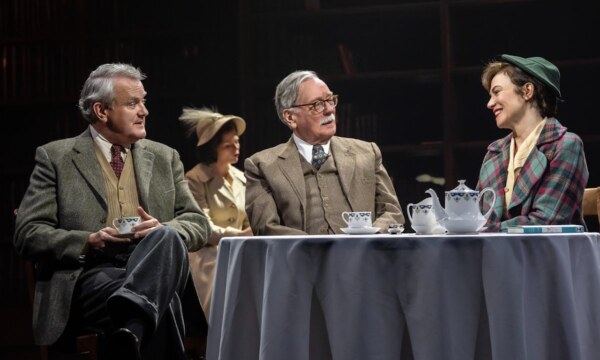


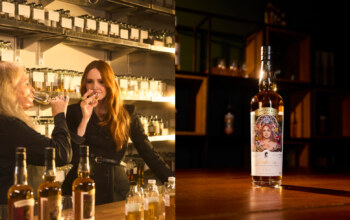
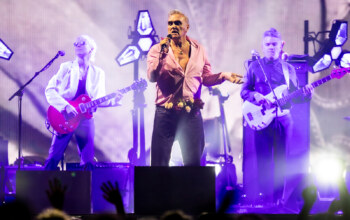


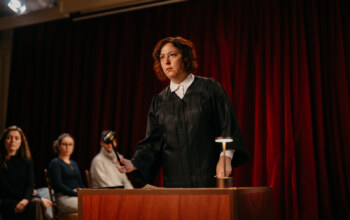


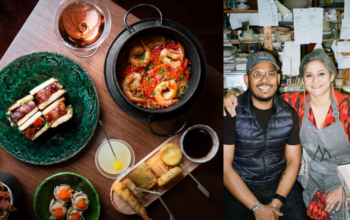


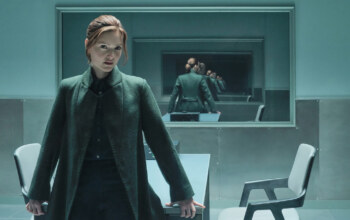
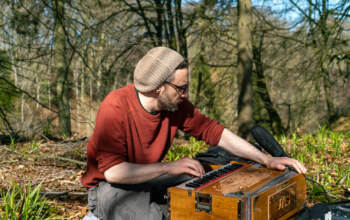
Facebook
Twitter
Instagram
YouTube
RSS